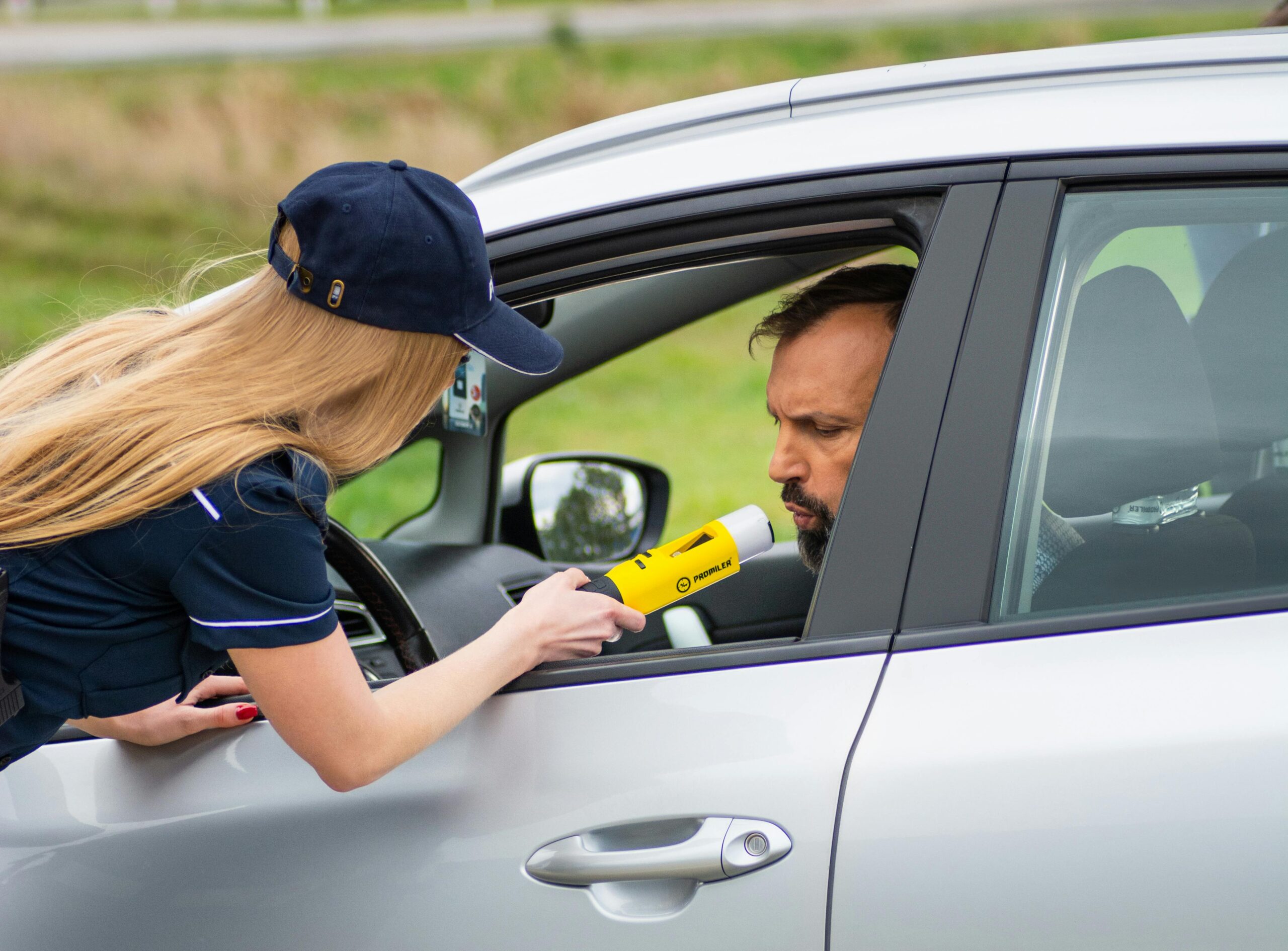Refusing to take a DUI test in Florida carries serious legal consequences. If a driver refuses, their license is automatically suspended for at least one year, and this refusal can be used against them in court. Understanding these penalties is crucial for anyone facing a DUI stop.
The law in Florida requires drivers to submit to breath, blood, or urine tests when suspected of driving under the influence. Refusal is not a right without consequence; the state treats it as an admission that the driver may be impaired.
Knowing the specific penalties and how refusal affects a case can impact the outcome significantly. This article explains what it means to refuse to take a test under Florida DUI laws and why it matters in both the short and long term.
Legal Basis for DUI Testing in Florida
DUI testing in Florida is governed by specific statutes and regulations that establish when and how tests are conducted. These rules clarify consent, the types of testing allowed, and the procedures law enforcement must follow.
Implied Consent Law
Florida’s Implied Consent Law requires drivers to submit to chemical testing if lawfully arrested for DUI. Refusal to comply results in automatic penalties like license suspension, regardless of guilt.
The law assumes drivers agree to testing by operating a vehicle on public roads. This applies to breath, blood, or urine tests after an arrest based on probable cause.
License suspension periods for refusal vary: 1 year for a first refusal, 18 months if a prior refusal exists within ten years. This penalty is separate from DUI criminal charges.
Authorized Testing Methods
Florida authorizes three main chemical tests for determining impairment: breath, blood, and urine. Breath tests are most common due to quick results and noninvasiveness.
Blood tests are used when breath tests aren’t feasible or when more precise analysis is needed, such as suspected drug impairment. Urine tests are rarely used and generally serve to detect drugs.
All tests must follow Florida Department of Law Enforcement standards for accuracy and chain of custody. Results from unauthorized or improperly administered tests may be inadmissible in court.
Role of Law Enforcement Procedures
Law enforcement must follow detailed steps before requesting a DUI test. They must establish probable cause, inform the driver of the Implied Consent Law, and explain the consequences of refusal.
Officers are required to read the driver an advisement form outlining rights and penalties connected to chemical testing refusal. This ensures the driver understands the consequences.
Improper procedure, such as failing to provide the advisement or obtaining a test without probable cause, can be grounds to challenge test results in court. Accurate documentation and adherence to protocols are essential.
Consequences of Refusal to Take a DUI Test
Refusing to take a DUI test in Florida triggers a series of legal and administrative penalties. These penalties are designed to deter refusal and maintain road safety. The consequences affect the driver’s license status, fines, and future legal standing.
Immediate License Suspension
When a driver refuses to submit to a DUI chemical test, Florida law mandates an immediate license suspension. For a first refusal, the suspension typically lasts one year. If the driver has prior DUI or refusal records, the suspension can extend to 18 months or more.
During this suspension, the driver cannot legally operate any motor vehicle in Florida. They may request a hearing within ten days to challenge the suspension but must act quickly. Refusing the test removes the option to use Breathalyzer, blood, or urine evidence that might help the driver’s case.
Administrative Penalties
Beyond license suspension, refusing a DUI test in Florida results in administrative penalties. These include hefty fines that can exceed $500 for a first refusal. Additionally, the driver may face a probation period lasting up to one year.
Insurance companies often raise rates or cancel policies once a refusal is recorded. This refusal also stays on record, influencing future legal or insurance matters. Drivers may be required to complete DUI school or other state-mandated programs as part of administrative penalties.
Repeat Offenses
Repeat refusals to take a DUI test carry significantly harsher consequences. With a prior refusal or DUI conviction, subsequent refusals lead to longer license suspensions—up to two years or more.
Fines increase substantially and the driver may face mandatory jail time starting at 48 hours. Courts may impose stricter probation conditions and require more intensive rehabilitation or education programs. Repeat refusals severely affect the driver’s ability to legally operate a vehicle and increase the risk of lasting legal and financial troubles.
Criminal and Civil Implications
Refusing a breath, blood, or urine test in Florida triggers specific legal consequences. These consequences affect both criminal charges and civil penalties, with important differences compared to failing a DUI test.
Use of Refusal in Court
Refusal to submit to a DUI test in Florida is admissible as evidence in court. Prosecutors often use this refusal to suggest guilt or consciousness of intoxication. However, refusal alone is not proof of impairment.
The state enforces an automatic license suspension of one year for first-time refusals and longer for repeat offenses. This suspension can happen regardless of whether the driver is ultimately convicted of DUI.
Additionally, judges may consider refusal during sentencing, potentially increasing fines or jail time. Legal defense often focuses on whether the refusal was lawful or if officers properly advised the driver of consequences.
Comparison with Failing a DUI Test
Failing a DUI test generally results in stronger evidence against the driver than refusal. A failed test provides measurable blood alcohol content (BAC) data, which directly supports DUI charges.
Penalties for failing a test can include license suspension, fines, mandatory DUI school, and even jail time depending on BAC levels and previous offenses. These penalties tend to be more severe than for simple refusal.
However, refusal avoids submitting physical evidence, which might limit prosecution’s case but does not prevent administrative penalties. Both refusal and failure carry serious consequences and impact a driver’s record and future license status.
Defenses for Refusing DUI Testing in Florida
Defendants can challenge refusal charges by focusing on errors during their stop or arrest and problems with how tests were administered. Strong knowledge of procedural and legal requirements is essential to identify valid defenses.
Invalid Stop or Arrest
A key defense is proving the initial traffic stop or arrest lacked probable cause. If the officer did not have a valid reason to stop the driver, any request for DUI testing may be unlawful.
Probable cause requires specific facts like erratic driving, traffic violations, or open container evidence. If these are absent, the stop may be ruled invalid.
Additionally, failure to follow statutory arrest procedures can invalidate the DUI charge. For example, refusing to provide a breath or blood sample without an official arrest can be challenged based on Florida law requirements.
Improper Test Administration
Another defense focuses on whether the officer correctly administered the DUI tests. This includes proper calibration of breathalyzer machines and accurate instruction to the driver.
If breath tests were not performed within regulated time limits or machine maintenance records are lacking, test results may be unreliable.
Additionally, prosecutors must show the suspect was informed of the consequences of refusal in compliance with Florida’s implied consent laws. Improper notification can weaken refusal charges.
Next Steps After Refusing a DUI Test
Refusing a DUI test in Florida triggers specific legal processes that must be addressed promptly. The driver has the option to challenge the suspension and should consider professional legal help to navigate the consequences efficiently.
Requesting a Formal Review Hearing
After refusing a DUI test, the driver has 10 days from the date of license suspension notice to request a formal review hearing. This hearing allows the driver to contest the suspension before the Florida Department of Highway Safety and Motor Vehicles (DHSMV).
During the hearing, the driver can present evidence, question the arresting officer, and explain the circumstances of refusal. The goal is to prove that the refusal was justified or that the officer lacked proper suspicion to request the test.
If the driver misses the 10-day deadline, the license suspension becomes automatic. The hearing decision can either uphold or overturn the suspension but cannot reverse other DUI charges.
Seeking Legal Representation
Hiring an attorney experienced in Florida DUI laws is crucial after test refusal. A lawyer can assess the case details, advise on rights, and build a defense strategy tailored to the refusal circumstances.
Legal representation can also help in negotiating with prosecutors, potentially reducing penalties or finding alternative resolutions. Understanding the technical aspects of DUI law and procedural rights often impacts the case outcome significantly.
An attorney guides the driver through the complex legal system, increasing chances of successfully challenging the suspension or minimizing penalties tied to refusal.





Comments